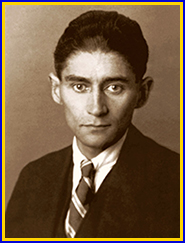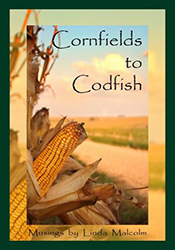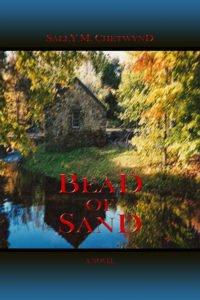
Monday, July 20, 2020
A Writing Critique Group
The writing critique group I belong to never fails to excite me. Our core group of six or seven regulars, supplemented by as many who join us once or twice a year, meets once a month, with two weeks to prepare commentary on the submissions.
Some of us are published, some of us are newbies, some of us are in between. Some of us are strong on dialogue, some on narrative, some on research, some on flashbacks, some on characters, some on technique, some on imagination. Some of us write in first-person, some in third-person, some in present tense, some in past-tense. Some of us mix it up to see what reads best.
We all have the same goal: to improve our art and craft.
Our coordinator set standards from the first:
- critiques are of the submitted work only, not directed personally about author
- comments must be constructive and specific
- highlight at least one positive aspect or section in the piece that resonates
It didn’t take very many sessions before we each found our own rhythm or critique style. My own method is to print out each submission, read it once through, let it percolate for a few days, come back and mark it with a red pen, write up my comments on a single sheet of paper, refer to them during the meeting when reviewing the piece, and then hand them over to the author. Sometimes I also hand over the redlined copy, too.
We’ve become good friends over the course of the three years since the group’s inception. This level of trust leads to a deepening understanding of each writer’s work, especially with long-term pieces like novels, and we end up looking forward to the next installment, concerned about the welfare of the characters as if they were our friends, too.
What fascinates me endlessly are:
- the variety of writing styles and genres in our group – novels, short stories, poetry, children’s book texts (and sometimes illustrations), essays both scholarly and personal, middle-grade and young-adult – however the Muse prompts us – and a screenplay has been proposed;
- the perspectives of our critiquing members – there’s always another way of looking at a work that surprises everyone, including the author – what one doesn’t make note of, another does;
- the incredibly creative and imaginative ways that these writers capture images and concepts – they consistently come up with phrases, often exquisite, that make me wish I’d written that;
- how each author enriches his or her work with concrete details from life experience, which gives it authenticity; and
- how much I learn in every session.
May you all find such a group to join!
Sally
Email Me | Visit Website | Sign Up For Newsletter
To Tease Your Mind
“Don’t bend; don’t water it down; don’t try to make it logical; don’t edit your own soul according to the fashion. Rather, follow your most intense obsessions mercilessly.”

Franz Kafka (1883-1924)
Bohemian novelist and short-story writer
This concept resonates constantly in me, and I adhere to it often when aspiring writers ask me how they should start. I expand on Kafka’s “don’ts” here, which I hope will free you in your writing goals.
- Your instincts lie closer to your soul than anything else, so listen to your gut. This advice is not original to me; writers far more accomplished have stated the same.
- Don’t let the idea that you must produce perfection prevent you from setting pen to paper; there’s no “right” place to start. Get it down – the idea, the passion, the meat of the thing.
- Don’t try to create a perfect first draft. (News Flash! Perfection doesn’t exist!) That’s why it’s called a “first” or “rough” draft. Winnow the wheat from the chaff after you have produced wheat and chaff to winnow. (Believe me, we ALL produce chaff, no matter how good our wheat looks when we’re done. And sometimes, all we produce is chaff, but that can be useful, too; maybe it’s wheat for another project.)2. The “fashion” aspect in Kafka’s statement has echoed through the ages, too. As Shakespeare wrote in Hamlet, “To thine own self be true.” Let no one else dictate your values.
- Don’t submit to the cultural clamor. If you choose to address it, do so. If you choose not to, don’t. You have no obligation to anyone to write anything.
- Don’t listen to those who tell you what you should write. (If they want that story written, let them write it.)
- Except for factual corrections, don’t listen to those who say that what you write is wrong. (What authority granted them this power? None such exists.)
- Don’t listen to those who say that you don’t have what it takes to write – ability or education or anything. (Again, who put them in charge?) Close to 20 years ago, I was struck by a short story by a Romanian with broken English, the story’s narrator being a cockroach that has fallen in love with a woman. Whodathunk such a story could be charming? But it was.
Write what inspires you. Play with words. Experiment with angles. Write what the Muse gives to you. Capture little vignettes from everyday life. Write what you want to write.
Write YOUR story. Nobody else can do that. Nobody.
Natterings & Noodlings
My friend Linda Malcolm published Cornfields to Codfish in December 2019, a collection of essays that celebrate simple things, the important things in life. (Check out her book, her blog, and her photography at her website.) Her joie de vivre has inspired my writing. Her essays are like soap bubbles, laughing and iridescent in the sun (do not soap bubbles laugh?) – tiny epiphanies that must be captured (in prose, despite the inadequacy of words) before they pop and vanish. Here is one such soap bubble of my own.
GRACE
A few years ago, my mother and I took a road trip Down East (six hundred miles, round trip) to tour the lighthouse in which my grandfather grew up, his father being the head keeper. It had been recently restored and its Friends group was hosting an open house with free boat rides to and from the island.
This was a grand experience for us Frederic Morong descendants. No one in our living family had ever before been to any of the four Maine lighthouses that my great-grandfather kept. Three of them are on offshore islands and the fourth is a “sparkplug” light in the middle of Lubec Channel, its foundation (“caisson”) anchored in the rocky bottom of this swift tidal passage between the United States and Canada.
Little River Island Lighthouse stands on the seaward side of the island situated at the mouth of Little River, which forms the harbor of Cutler. Because this tiny fishing village has no public lodging, eateries, or tourist services, we booked a room in Lubec, twenty miles away. Lubec’s population (year-round at 1300, a metropolis four times bigger than Cutler) swells by fifty percent in the warmer months. Locals have established accommodations for summer residents as well as sightseers who cruise through town on their way to the iconic West Quoddy Head Lighthouse. The other major attraction is Franklin Delano Roosevelt’s summer cottage in Roosevelt Campobello International Park, across the channel in Canada.
Mother and I had traveled to Lubec the previous November, to take part in a grave-marking service for my great-grandfather. We had stayed at a bed-and-breakfast at the top of the steep knoll on which the town is built, but for this July trip, the B&B was booked. We arrived in town around six in the evening, settled into our room at a waterfront hotel, and went out for supper. Upon our return, my mother wondered where we might find breakfast in the morning, most of the few restaurants in the little town open only for lunch and dinner. She suggested that the B&B hosts might be willing to seat us at their breakfast table. So off I went to find out.
Reaching the top of the steep incline of Main Street (akin to a roller-coaster drop), I stopped to catch my breath, looking around as dusk descended. Thunder muttered in the distance, leftovers from a storm that had chased the tide down Passamaquoddy Bay and Lubec Channel and out to sea two hours earlier. The bed-and-breakfast stood on the north side of the street, the impressive Lubec Congregational Church opposite it. The church was lit up and music streamed from its open windows and doors. I proceeded to the inn, only to find that the proprietors were out at dinner with friends. To pass time until their return, I followed the music to the church.
The sanctuary occupied the second floor, up a wide, steep staircase. The event was a coffeehouse, well attended by both year-round residents and “summer complaints” (as the natives refer to seasonal folks and tourists “from away”) who filled the pews. When I entered, a man was playing a theramin. This is not a nutritional supplement; it’s an electronic device that looks like the offspring of a 1950s Airstream camper and a bread box, with an antenna at each end. Weird yodels emerged from it, created as the operator moved his hands through the air between the antennae, without touching the instrument. Quite bizarre, and perhaps the most popular musical instrument employed by sound-effects artists in cheesy gothic and sci-fi horror flicks.
When the theraminist finished, a small quartet assembled and played piano, violins, and viola. They were quite good, entertaining us with a couple of classical pieces. In turn, different folks took the stage.
After a while, the event host checked his list and found George signed up as next to perform. George was well into his nineties. He was so crippled that two men had to assist him to the piano. Once settled there, he began to play. Beautiful chords lifted into the air as his gnarled fingers moved nimbly through several passages. Then they bungled and the euphony was gone. He floundered on the keys. In a moment he found his place, and once again, the dulcet composition filled the room.
Poor George continued to falter, stop and apologize, and find his place again. Around the blunders, he coaxed lovely strains from the piano. Throughout the next fifteen minutes he fought the erratic disconnect, frustrated that his fingers would not do what his brain commanded.
The whole while, the audience remained quiet, patient, and attentive. Several near the front frequently called to him in a tender stage-whisper, “It’s all right, George. Go on. You’re doing fine.”
It was clear that these people knew George well, and knew what he had once been. A professional musician? A maestro? His body, now aged and frail, betrayed him. But these gentle, compassionate souls were willing to ignore his stumbles and fumbles over the keys, eager to hear those exquisite fragments, knowing that all too soon he wouldn’t be around to entice even those few gems of genius from the piano, gracing his friends with perfection when he found that sweet spot, giving them glimpses into what once had been – a cherished memory.
Linda Malcolm – Author
Since Linda inspired the essay above, why not highlight her here?

Author, Personal Essayist
Cornfields to Codfish (2019)
I met Linda when she joined the writing critique group of The Room to Write, a literary arts forum founded by Colleen Getty in 2017. Linda submits essays of her life experiences to the group every month, taking us on her journey as she creates prose connections between past and present, adults and children, Iowa and Massachusetts and England and Korea, sickness and health, farm life and suburban life, culture and heritage. A cancer survivor, Linda exudes joy in every story, from the complexities of chemotherapy to the simplicity of a table linen embroidered by her great-grandmother. Her debut book, Cornfields to Codfish, is indelibly infused with bonhomie and gentle humor.
The release of Linda’s book has only primed the pump for more essays. Material abounds when you have a family comprised of an Iowa dairy-farm girl, a Englishman whose family runs a pub, and two boys adopted from Korea, living in Massachusetts’ North Shore, which may be as close as they can get to half-way from all of these places. Is another book in the wings, Linda?

Word’s Worth
Oxford English Dictionary
noodle 1. n. a simpleton, a stupid or silly person
2. v. to fool
3. n. a strip of dough made of wheat, flour, and eggs, served in soup
of obscure origin; earliest use: 1753
noodleism 1. n. silliness, stupidity
2. n. a silly action or idea
Merriam-Webster.com
noodle 1. n. the head (slang)
2. n. a fool or simpleton
3. v. to improvise a musical passage in a casual manner
4. v. to play or toy
from German nudel; an Americanism dating to 1935-1940
1. v. to improvise, experiment, or think creatively
2. v. to manipulate or tamper with
Calendar & Announcements
Like everyone else, I have little to nothing on my calendar for readings, performances, book fairs, and so forth. The number of online events is growing, however, available by invitation through Zoom, Google Hangouts, and other video-conferencing programs. Soon we’ll all be experts at virtual meetings.
Conversations
Do you have comments or questions about this post? Let’s talk!
Happy reading! Happy writing!
Sources
- Footage from 1954 of Leon Theramin playing his own instrument, the theramin, which he invented in 1920, posted on YouTube at https://www.youtube.com/watch?v=w5qf9O6c20o
- Franz Kafka image from Wikipedia https://en.wikipedia.org/wiki/Franz_Kafka
- Linda Malcolm and Cornfields to Codfish images from https://www.lindamalcolm.com



